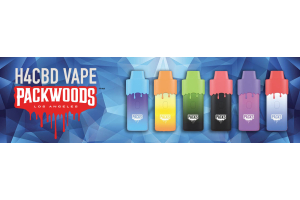Nitrile Gloves Qnubu

Nitrile Gloves: Essential Protection for Various Industries
Nitrile rubber gloves are an essential accessory used in many industries, and they've become well known for their durability, chemical resistance, and overall protective and preventive qualities.
This blog examines the specifics of nitrile gloves, focusing on Qnubu's new offering. It also discusses their crucial benefits and how they play a vital role for producers and packagers in herbal extractions.
What are Nitrile Gloves?
Nitrile gloves are made of a type of synthetic rubber known as nitrile butadiene rubber, aka NBR, a copolymer of acrylonitrile and butadiene. Their explosion in the market and development was a direct response to the prevalence of latex gloves and the irritation latex can cause for those with allergies.
Nitrile gloves are known for their:
- Chemical Resistance: They resist various chemicals, making them suitable for multiple applications.
- Puncture Resistance: Nitrile is three times more puncture-resistant than latex, providing enhanced protection.
- Durability: These gloves offer superior strength and longevity.
- Hypoallergenic Properties: Since they are latex-free, they are suitable for individuals with latex allergies.
- Comfort and Fit: Modern manufacturing techniques have improved nitrile gloves' comfort and tactile sensitivity, making them comparable to latex gloves.
Common Uses of Nitrile Gloves
Nitrile gloves are widely used across numerous sectors due to their versatility and protective properties:
- Healthcare: Nitrile gloves are standard in medical settings, including hospitals, clinics, and dental offices, for examination and surgical purposes.
- Laboratories: Nitrile Gloves are essential in laboratories to safely handle chemicals and biological materials.
- Food Industry: These gloves are used in food preparation and handling to maintain hygiene and prevent contamination.
- Industrial Applications: In industries such as automotive, manufacturing, and cleaning, nitrile gloves protect workers from exposure to hazardous substances.
- Cosmetic and Beauty Industry: Professionals use nitrile gloves to avoid exposure to dyes, chemicals, and other potentially harmful substances.
Nitrile Gloves in Herbal Extraction
The herbal extraction market constantly sees significant growth, as does the increased focus on safety and quality control during Extraction. Nitrile gloves are an integral part of this industry for several reasons:
Protection Against Chemicals
Herbal extractions often involve solvents such as ethanol, butane, or carbon dioxide. Nitrile gloves protect workers from these potentially harmful chemicals, reducing the chance of skin irritation or chemical burns. Furthermore, several plant compounds can also cause further irritation, hence the importance of the protective properties of nitrile gloves.
Maintaining Product Purity
Gloves help ensure that the extracted cannabis oil or concentrate remains uncontaminated. Nitrile gloves prevent oils, sweat, and other contaminants from coming into contact with the product, preserving its purity and quality.
Compliance with Regulations
In certain regions, the herbal extraction industry is subject to highly stringent protocols to ensure product safety and quality. To comply with health and safety guidelines successfully, nitrile gloves are part of standard operating procedures (SOPs).
Durability and Puncture Resistance
Handling sharp tools and equipment is standard in herbal Extraction. Qnubu Nitrile gloves also provide premium puncture resistance compared to traditional latex gloves. The Qnubu Diamond Nitrile gloves offer even more excellent protection against accidental cuts or abrasions.
Step-by-Step Use of Nitrile Gloves in Herbal Extraction
- Preparation: Before starting the extraction process, workers should wash and dry their hands to ensure no moisture is trapped inside the gloves.
- Donning the Gloves: Select the appropriate glove size for a snug fit. Carefully put on the nitrile gloves, ensuring no tears or punctures.
- During Extraction, nitrile gloves should be worn at all times when handling herbal extracts, organic matter, and solvents. This minimizes direct contact with chemicals and ensures that the herbal material remains uncontaminated.
- Handling Equipment: Use nitrile gloves when operating extraction equipment to protect against accidental exposure to solvents or plant material.
- Post-Extraction: Once the extraction process is complete, remove the gloves, avoiding contact with the exterior surface. Dispose of the gloves according to safety protocols.
Advances in Nitrile Glove Technology
The need for better protection, comfort, and performance has driven the development and improvement of nitrile gloves. Recent advancements in nitrile glove technology include:
Enhanced Comfort and Fit
Manufacturers have focused on improving the tactile sensitivity and fit of nitrile gloves. Modern nitrile gloves are designed to be more flexible and comfortable, allowing for extended wear without compromising dexterity. Qnubu Nitrile Gloves come in a range of sizes, ensuring that there will be gloves of the size appropriate for you no matter what fit you require.
Textured Surfaces
Many nitrile gloves now feature textured fingertips or entire surfaces to improve grip, especially when handling tools and equipment in the herbal extraction process. This ensures a secure hold on slippery or small objects. The Diamond Grip Qnubu Nitrile Gloves are a premium example of this.
Eco-Friendly Options
As sustainability becomes a growing concern, some manufacturers produce eco-friendly nitrile gloves. These gloves are designed to decompose more rapidly than traditional nitrile gloves, reducing environmental impact.
Sustainable Practices
Sustainability will continue to be a crucial objective across multiple key focuses. Developing biodegradable nitrile gloves and other eco-friendly alternatives will help the herbal extraction industry reduce its environmental footprint.
Traditionally, latex gloves are made from a natural rubber compound and are naturally biodegradable. However, the same can't be said for most nitrile gloves. Nitrile gloves are not biodegradable, as their production methods use synthetic compounds that break down. However, thanks to Qnubu, finding a biodegradable pair of nitrile disposable gloves is now possible thanks with Qnubu disposable nitrile gloves.
Nitrile gloves are indispensable in many industries due to their protective qualities, durability, and versatility. In herbal extractions, they are vital in ensuring safety, maintaining product purity, and complying with industry regulations. As the demand for herbally extracted consumables continues to rise, nitrile gloves in this sector will remain crucial for achieving high quality and safety standards.
By understanding the benefits and proper use of nitrile gloves, workers in their respective industries can ensure a safer and more efficient extraction process, ultimately contributing to the production of top-quality products.











